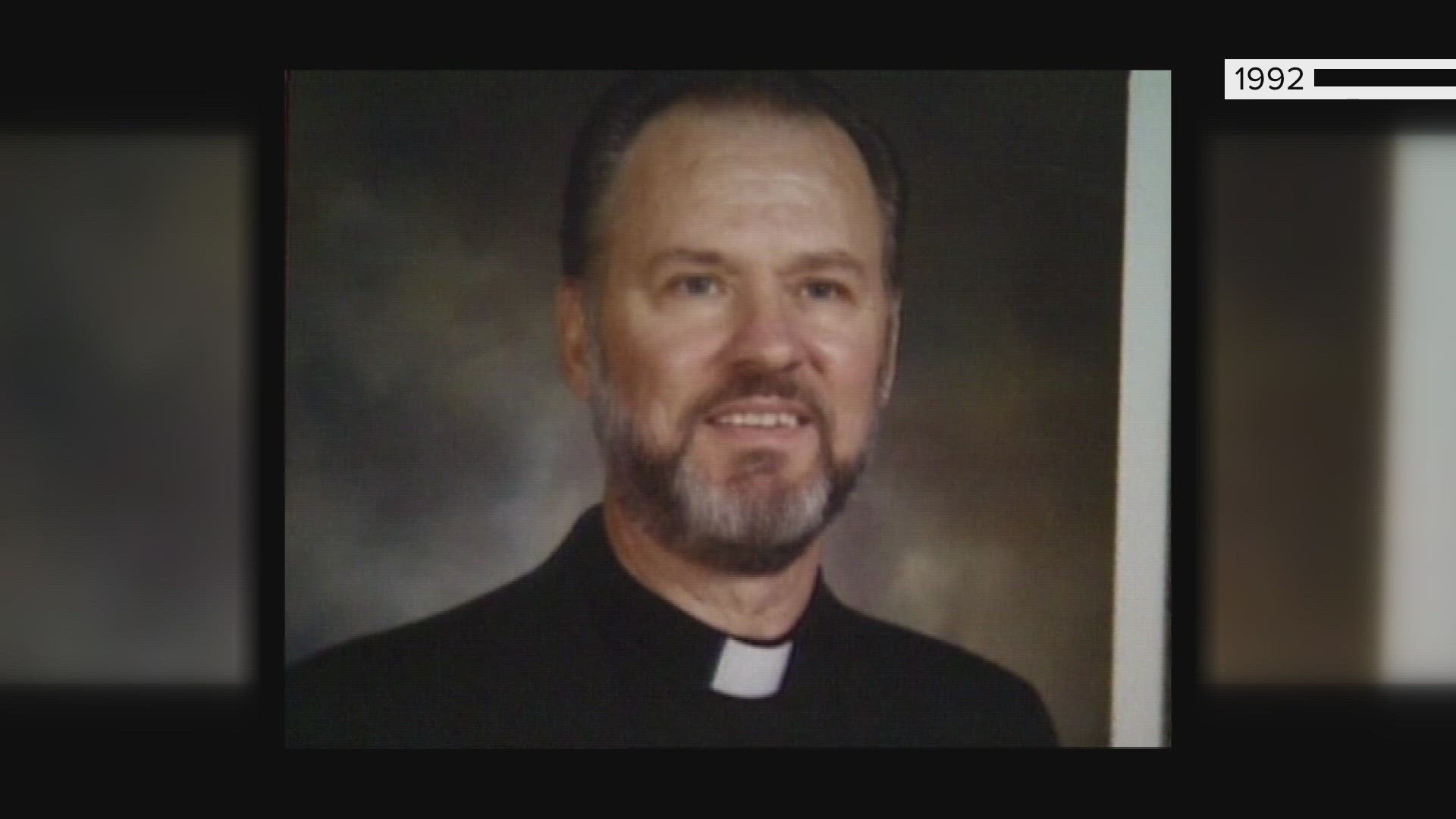N.O. archbishop helped pedophile priest get aid, called court order to stop paying him ‘unjust’
Secret church records obtained by the Guardian and WWL show Archbishop Aymond wished to keep supporting Gerard Howell, a priest accused of molesting 24 children.
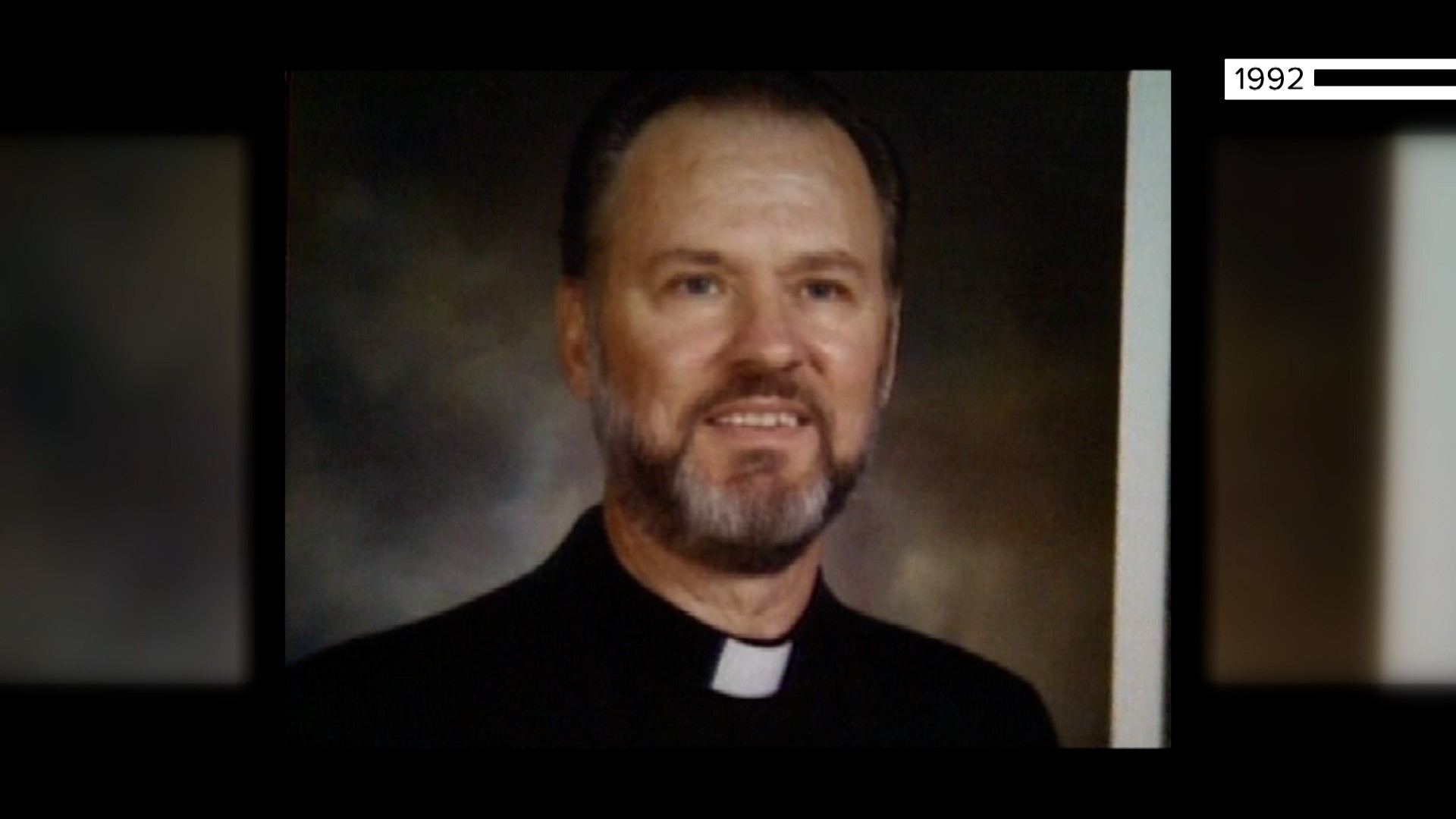
For decades, Gerard “Jerry” Howell had avoided punishment for what his own church considers credible sexual abuse allegations leveled against him by dozens of children – including many deaf youths whom he met through his work.
Now, he’s found another way around what little administrative accountability he eventually faced, this time with the help of New Orleans’s archdiocese and its archbishop.
A court order put a halt to retirement benefits paid to Howell and other similarly accused priests, but only after the archdiocese declared bankruptcy in 2020 as it continued to struggle managing the fallout of a decades-old clerical abuse scandal.
Nonetheless, in a private letter to a high-ranking Vatican official in the U.S., New Orleans Archbishop Gregory Aymond made clear how little he thought of that court order, saying the mandate was “unjust and painful.”
Aymond also wrote that a high-ranking aide had sent Howell information about a nonprofit which financially “assists priests such as Father Howell” – even though the group’s leader had previously been shut down by Michigan’s attorney general for misusing donations and misleading donors about his organization’s purpose.
“We fervently pray that Father Howell’s pursuit of those outside resources is successful,” Aymond wrote in a letter to the Vatican’s U.S. ambassador, Archbishop Christophe Pierre. “My heart goes out to him.”
The Guardian and WWL Louisiana obtained secret correspondence between church officials about Howell as the news outlets continue reporting on the extent to which the archdiocese of New Orleans coddled suspected – and, in some cases, admitted or convicted – child molesters.
Letters between Howell and Pierre, between Aymond and Pierre and from the church’s own psychological evaluation of Howell provide the fullest account available of support Howell received from the archdiocese for decades, without interruption.
Howell as well as his late brother and fellow priest Rodney Howell are listed among more than 70 clergymen whom the New Orleans archdiocese considers to have been credibly accused of child molestation.
But Jerry Howell’s inclusion on that roster – first published in 2018 – came eight years after Aymond received a psychologist’s report warning that Howell “will always be [considered] ‘high risk’ due to the number of incidents of abuse he perpetrated against young children.”
“One of the few groups of sexual offenders that continue to abuse into the elderly years is pedophiles,” that report said, referring to Howell, now 84. “With a pedophile, one cannot count on the aging process to naturally diminish deviant arousal or extinguish sexually abusive behavior.”

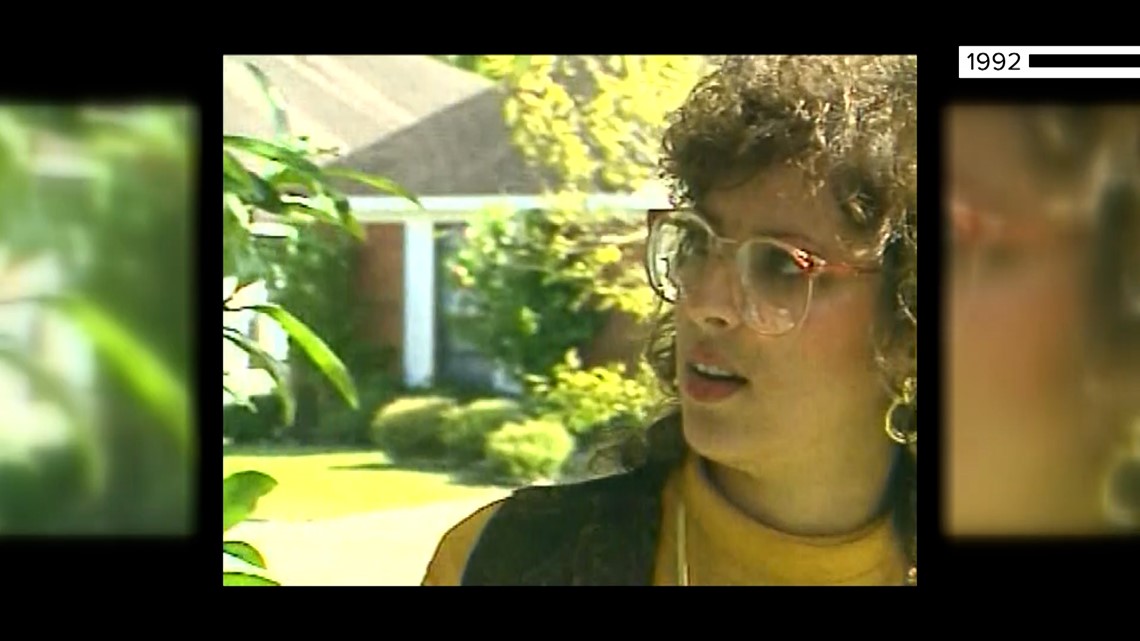
One of Howell’s victims, Kathy Austin, said she had no idea the archdiocese had already reported the priest to law enforcement until WWL and the Guardian informed her. She also could not believe it when told the archdiocese – citing an obligation under church law – ignored the psychological evaluation of Howell and paid his full rent, insurance and utilities, along with a monthly stipend of $650, for another decade.
She was incredulous, too, that when the judge overseeing the archdiocese’s bankruptcy directed the church to stop providing such support to Howell and other credibly accused priests, the archbishop not only complained that the order was unfair – he also gave her abuser advice on how to effectively stage an end-run around the directive.
“That is so far out of the scope of his responsibilities,” Austin said of Aymond. “I do not believe that that is his job.
“There’s no punishment here. No punishment.”
Howell didn’t respond to requests for comment. Visitors to a New Orleans church website can still see local Catholic officials tout Howell’s appointment as the archdiocese’s first director of the local deaf apostolate.
In a statement, Aymond said he prays for abuse survivors daily – but that doesn’t preclude him or “anyone else from praying for those who have committed sins, even one as heinous as sexual abuse of a child, or (from) offering charity to sinners.”

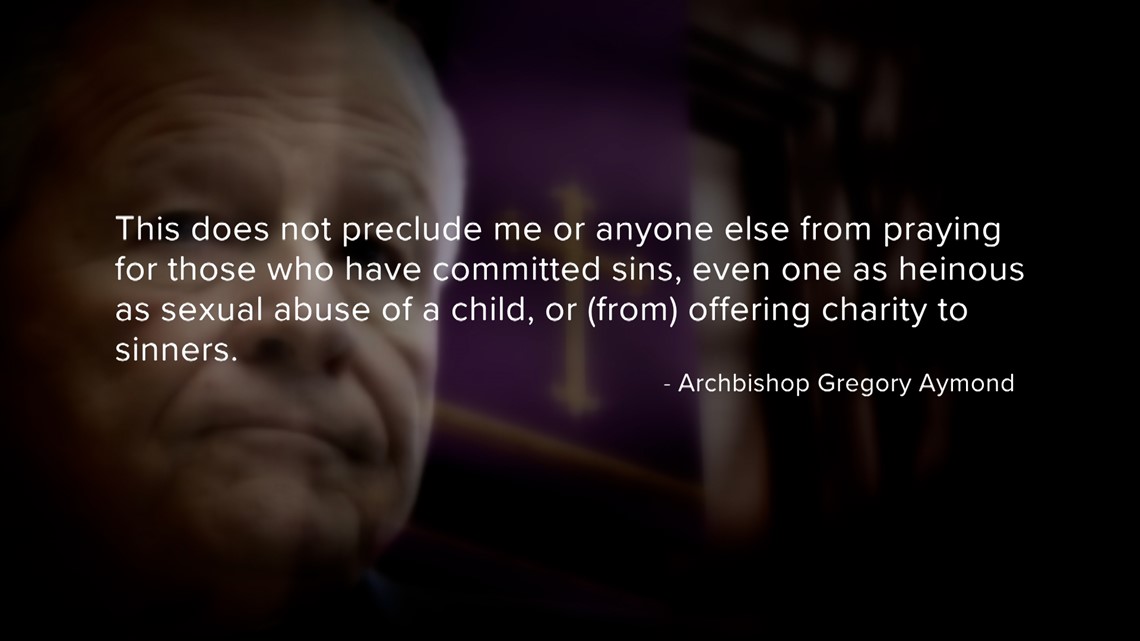
“It is my deepest desire that this message of love and forgiveness help all to find grace and hope for survivors and their families,” Aymond’s statement said.
Aymond’s statement did not address questions about the legitimacy of the organization he recommended to Howell.
‘Quit and get a job’
Austin, her sister Darlene and about two dozen other people have alleged over the years that Howell molested them as children while at the Catholic Center for the Hearing Impaired that he started in 1967.
The Austin sisters went public with their stories of abuse at the hands of Howell as far back as 1992. As part of that reporting, WWL interviewed a therapist who treated Howell’s accusers and said the archdiocese simply refused to remove him from ministry.
“In this particular case, the church knows, and they’re not doing anything about it,” Linda Conner said to WWL, which also interviewed the Austin sisters for the 1992 report.
Howell himself, in the confidential records obtained by the Guardian, revealed just how long authorities were aware of his allegedly abusive behavior but did little about it.
He wrote that late New Orleans Archbishop Philip Hannan reported Howell to local district attorney Harry Connick Sr. for possible criminal charges as far back as 1980 – a dozen years before Conner’s interview with WWL.
Connick, a famously pious Catholic who is the father of renowned singer Harry Connick Jr., never filed charges against Howell. Howell added that Hannan then sent him for psychiatric treatment in 1980 but ultimately let him return to ministry in various New Orleans churches.
It was not until a year after WWL’s 1992 report on Howell that late Archbishop Francis Schulte ordered the priest to – as he put it – “quit and get a job.” Howell, however, appealed to the Vatican. And in 1995, Schulte let Howell “continue as a priest with full financial benefits.”

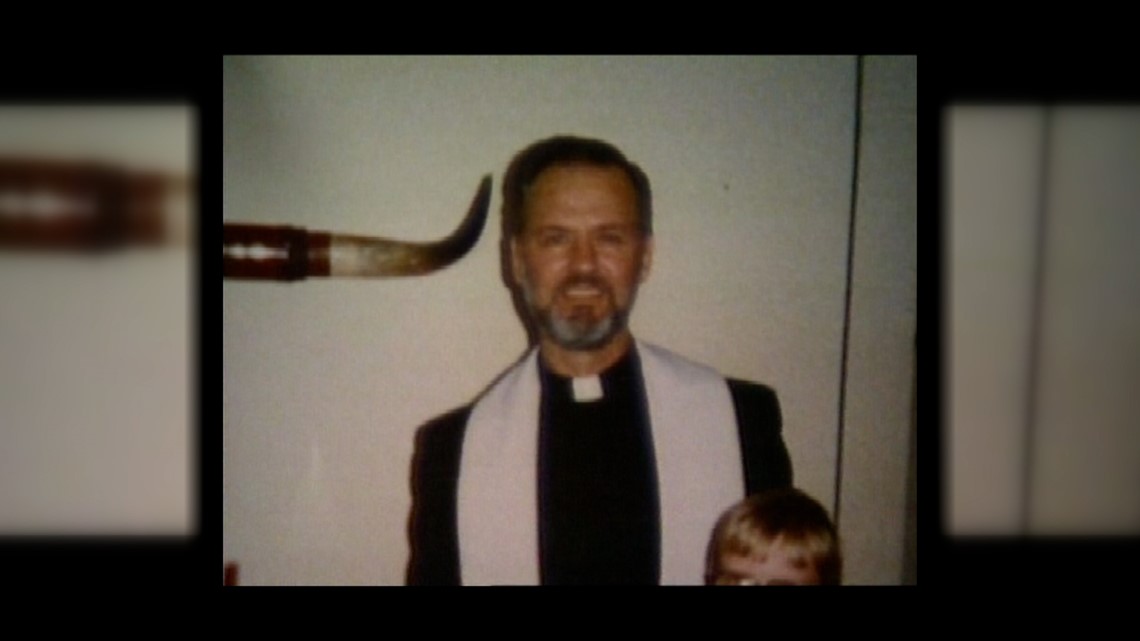
Aymond became New Orleans’ archbishop in 2009. And a year after he assumed that role, Aymond sent Howell to another treatment center.
Howell more recently claimed in writing that he was cleared after that evaluation. But a letter to Aymond from the psychologist who evaluated Howell, Monica Applewhite, contradicts him.
Applewhite said Howell should still be considered a pedophile who could not be rehabilitated and warned it was unlikely that either she or the church knew his complete history.
“The archdiocese knows of at least 24 cases and given the young age and exceptional vulnerability of the children (many of whom were deaf) this is likely to be a significant underestimate of the full volume of cases,” Applewhite wrote, adding that Howell would “always be ‘high risk.’”
Applewhite also reported that Howell was known to spend time around children who lived near or even visited his apartment at the time at a senior living center in Austin, Texas, a city where Aymond had once been bishop.
Aymond said he notified local law and church authorities in the Austin area about Howell’s abusive past to “ensure that he did not receive priestly faculties” enabling him to minister to the public.
Yet Applewhite said Howell blocked her efforts to notify his neighbors and acquaintances about his history. She said he became belligerent when she told him she wanted to talk to some of the families with children in his orbit to find out if they knew about his pedophilia.
“He said it was ridiculous … and couldn’t understand how people get a sadistic pleasure out of degrading other people,” Applewhite wrote. “Jerry stated clearly … that no, he would never accept a situation in which it could be possible for those families to talk with me and know his history.
“Jerry has not demonstrated the level of openness that can make living in a community a safe situation for a man with his history.”
‘I’m speechless’
Applewhite’s findings did not dissuade Aymond’s archdiocese from continuing to pay Howell his rent, insurance, utilities and a $650 stipend while he resided in Austin, where he had moved after living in a monastery in South Dakota for a time.
Howell’s arrangement with the archdiocese came to an end when New Orleans-based federal bankruptcy Judge Meredith Grabill ordered it shortly after the local church filed for Chapter 11 protection in May 2020. Yet Howell subsequently found a way around that order.
In his own letter, Aymond wrote to archbishop Pierre, the Vatican’s US ambassador, and argued that church – or canon – law required the New Orleans Archdiocese to continue supporting him. In his letter to Pierre, Aymond explained that the archdiocese had to prioritize Grabill’s order over canon law if it didn’t want its bankruptcy case to be struck down.
Yet Aymond’s letter to Pierre also made it a point to express displeasure with Grabill’s order to stop paying Howell and the other similarly situated priests, only a small number of whom have faced criminal prosecution.
“This is unfortunate. … Needless to say, this situation is unjust and painful,” Aymond said. “My heart goes out to him, and I wish we could pay sustenance as proposed by Canon Law.”

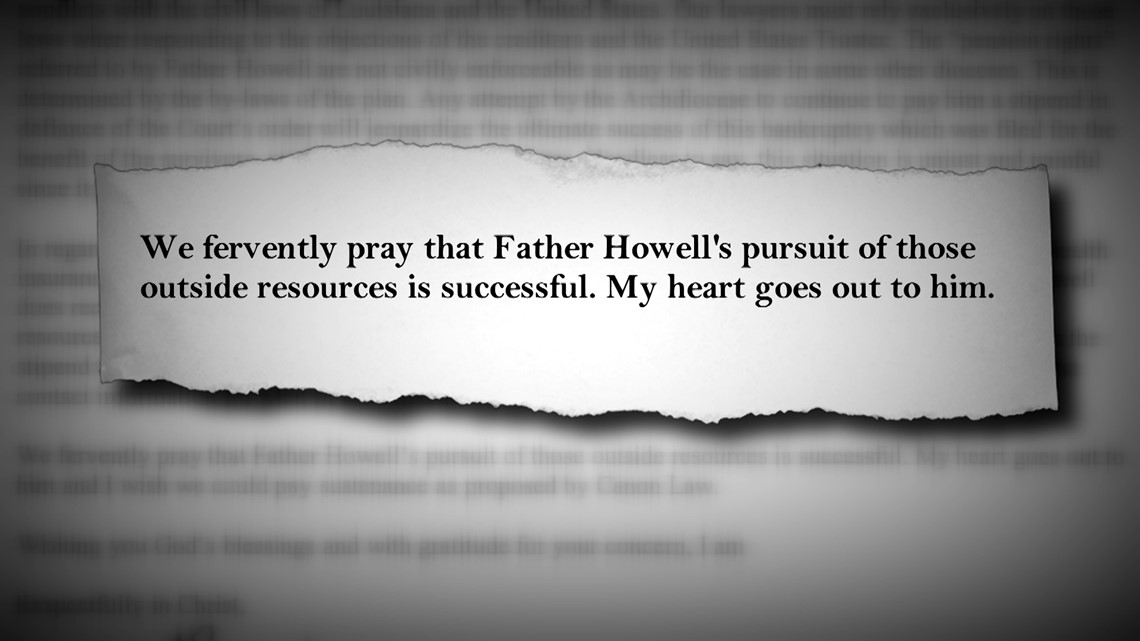
As both Howell and Aymond’s letters to Pierre pointed out, Howell had not been left completely empty-handed. He received Social Security, and Grabill later allowed medical benefits for priests like Howell to be left in place, the letters said.
But Aymond’s letter added that one of his top deputies sent Howell contact information for the Men of Melchizedek in hopes that the organization could “supplement his Social Security (and) more fully replace the stipend” he’d been forced to give up.
Aymond described Men of Melchizedek as a nonprofit meant to help “priests such as Father Howell.” The group’s website says it assists priests – especially those behind bars because of criminal charges.
An Associated Press investigation in 2019 found that Michigan’s attorney general had previously shut down a similar nonprofit named Opus Bono Sacerdotii, run by the Men of Melchizedek’s founder, Joe Maher. The attorney general charged that Opus Bono had misused donations and misled donors. Maher settled the case against his group – whose name means “work for the good of the priesthood” – in part by agreeing to never run another nonprofit in Michigan again.
But just months later, Maher formed Men of Melchizedek, a reference to an Old Testament figure, and carried out a nearly identical mission. Men of Melchizedek was technically incorporated in Indiana, but the address of its office is in Michigan.
Men of Melchizedek did not respond to a request for comment about its relationship with Howell. The organization’s website touts the extent to which it goes to shield the identities of those involved with the group.

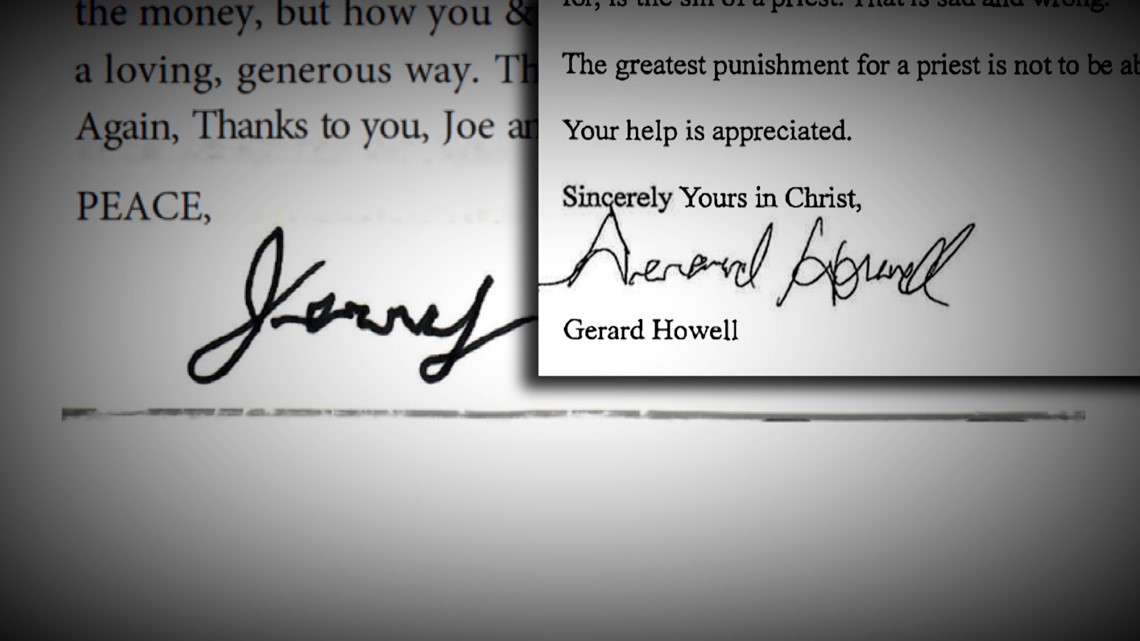
But there was a copy of a handwritten note posted on the Men of Melchizedek’s site which thanked the group and its founder for paying his stipend. The note was signed “Jerry” in what Austin fears could have been the same shaky hand that signed “Gerard Howell” on his 2020 letter to Pierre.
“I saw the thank-you note, and I saw the handwriting – I was like, that looks oddly familiar,” Austin said.
The Men of Melchizedek’s website had cut off the “Jerry” signature from the thank-you note after being asked about it by the Guardian and WWL on Tuesday, Jan. 23.

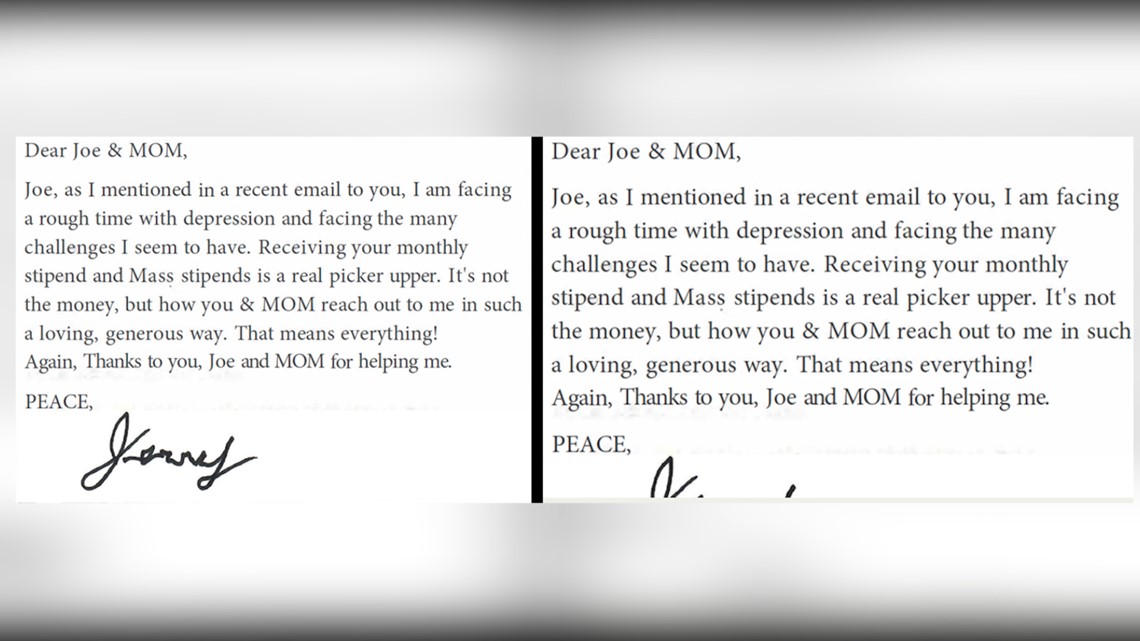
Austin could not believe her clergy abuser’s superiors would suggest he get in league with such a group. The suggestion wasn’t illegal, but it struck Austin as immoral and improper.
“I’m speechless because … I just don’t understand how this can happen,” she said.

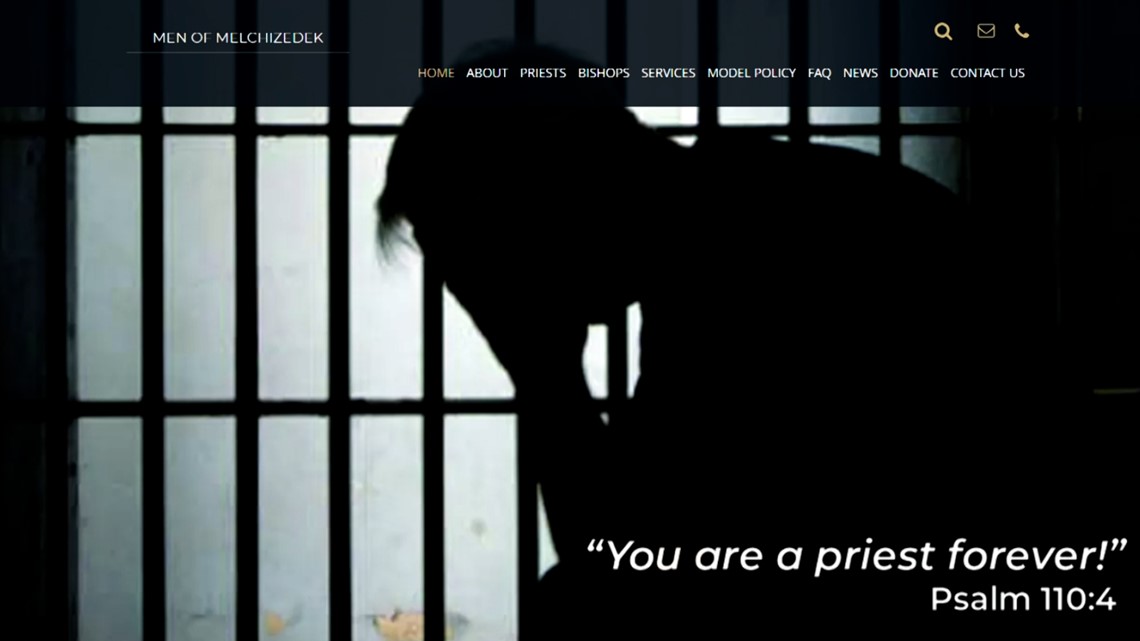
► Get breaking news from your neighborhood delivered directly to you by downloading the new FREE WWL-TV News app now in the IOS App Store or Google Play.


